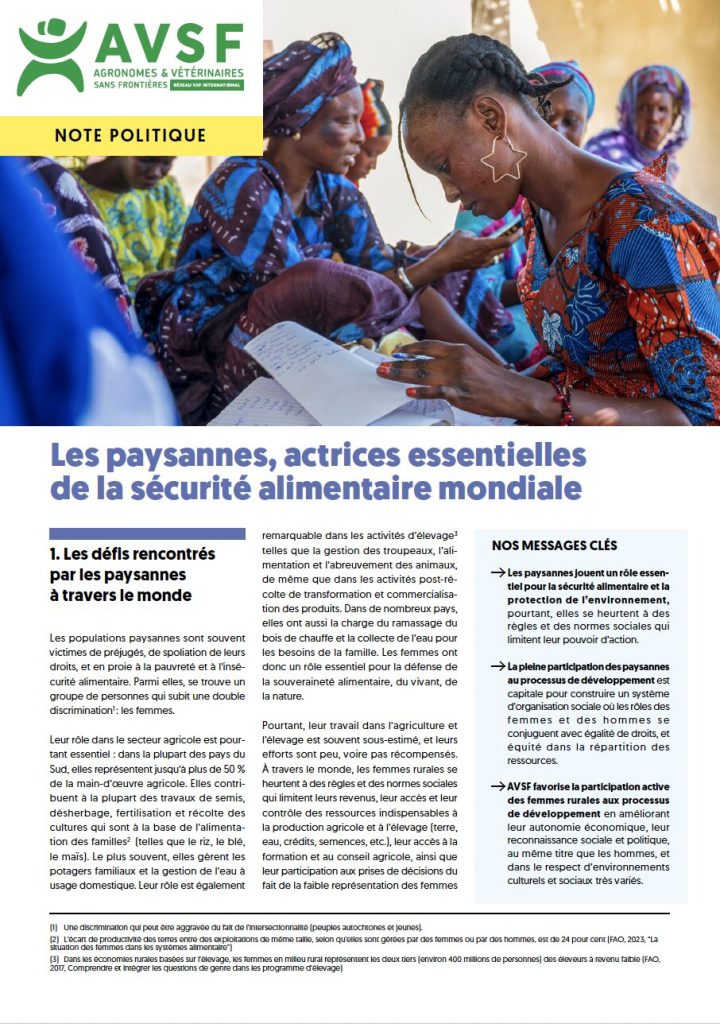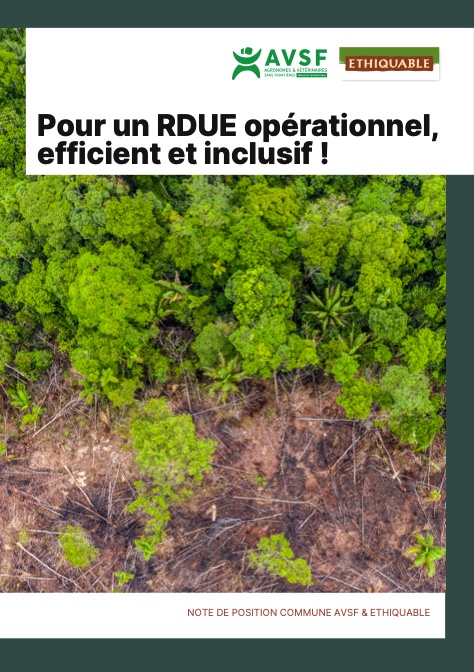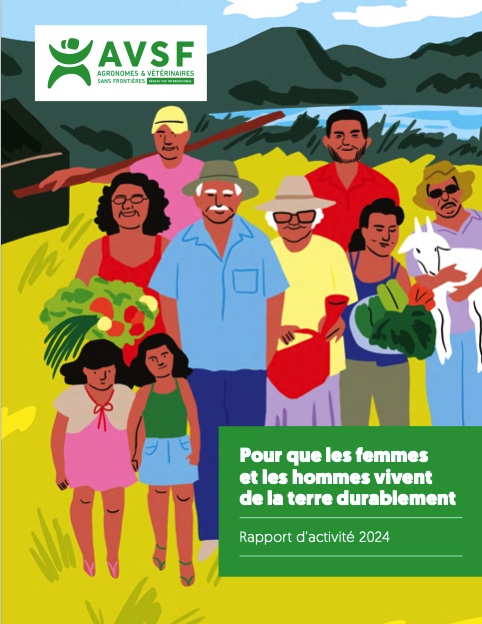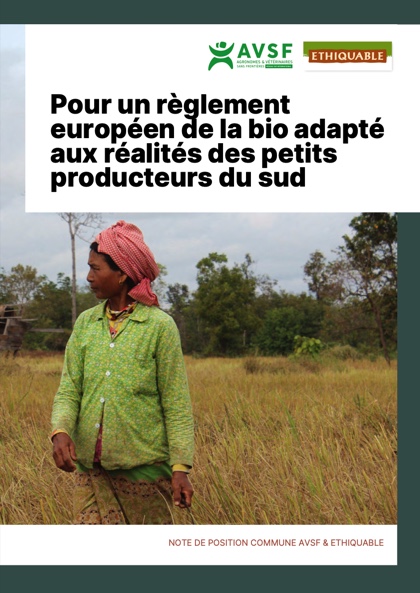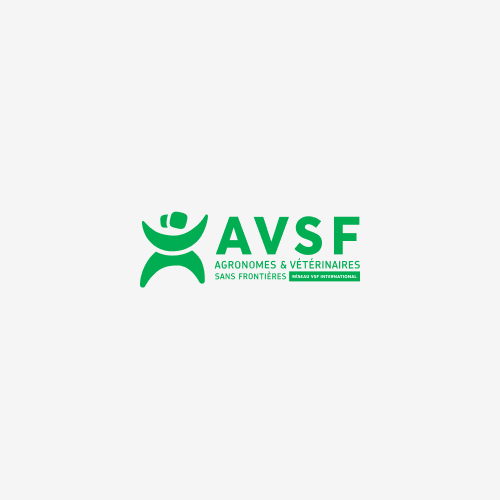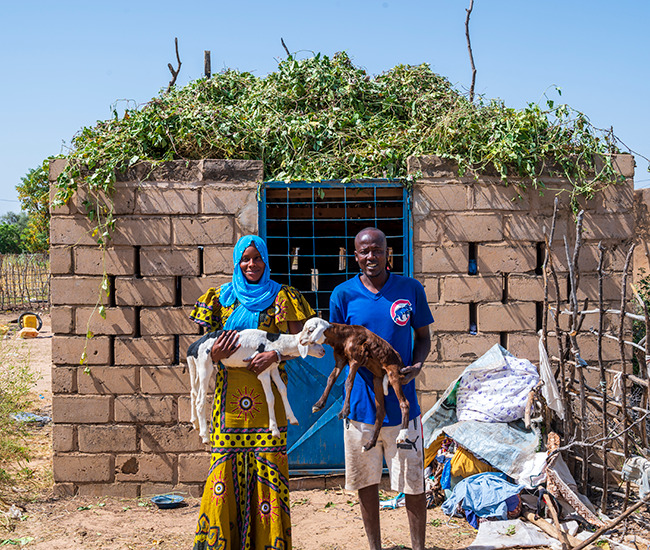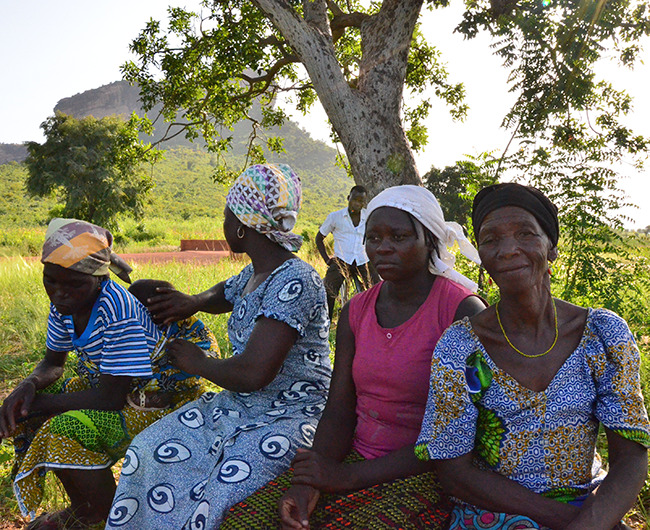Throughout the world, rural women are confronted with rules and social norms that limit their income, their access to and control over the resources essential for agricultural production and livestock breeding, their access to training and agricultural advice, and their participation in decision-making, due to the low representation of women in political and community bodies and within farmers’ organizations, where their voices are sometimes little heard.
Yet their role in the agricultural sector is essential: in most countries of the South, they represent up to 50% of the agricultural workforce, contributing to most of the agricultural work. Yet their work in agriculture and livestock farming is often underestimated, and their efforts are little or not at all rewarded.
According to the FAO, 45 million people would be spared food insecurity if gender disparities in agricultural productivity and wages were eliminated. Empowering women in agri-food systems would therefore have a significant positive impact on agricultural production, food security and the nutritional quality of food.
This note presents AVSF’s approach to fully integrating women and men in development issues. The aim of this approach is to improve women’s economic autonomy and social and political recognition. It incorporates working methods and tools that make it easier to take gender equality into account in AVSF’s actions.
